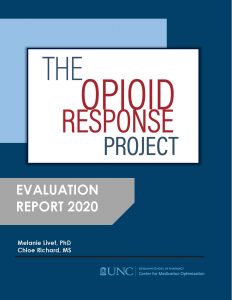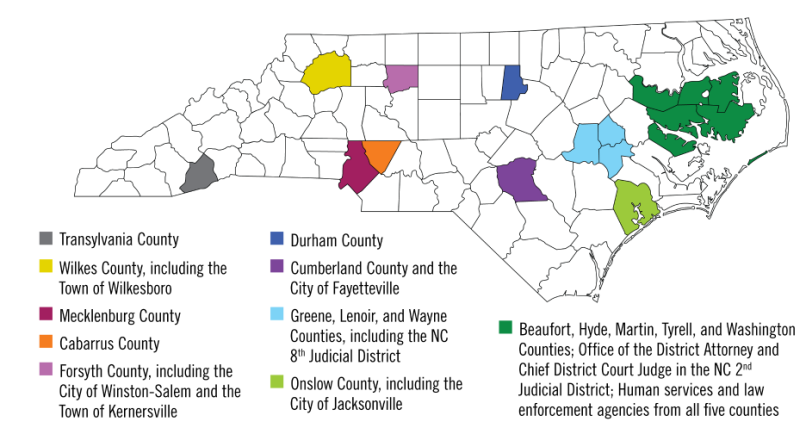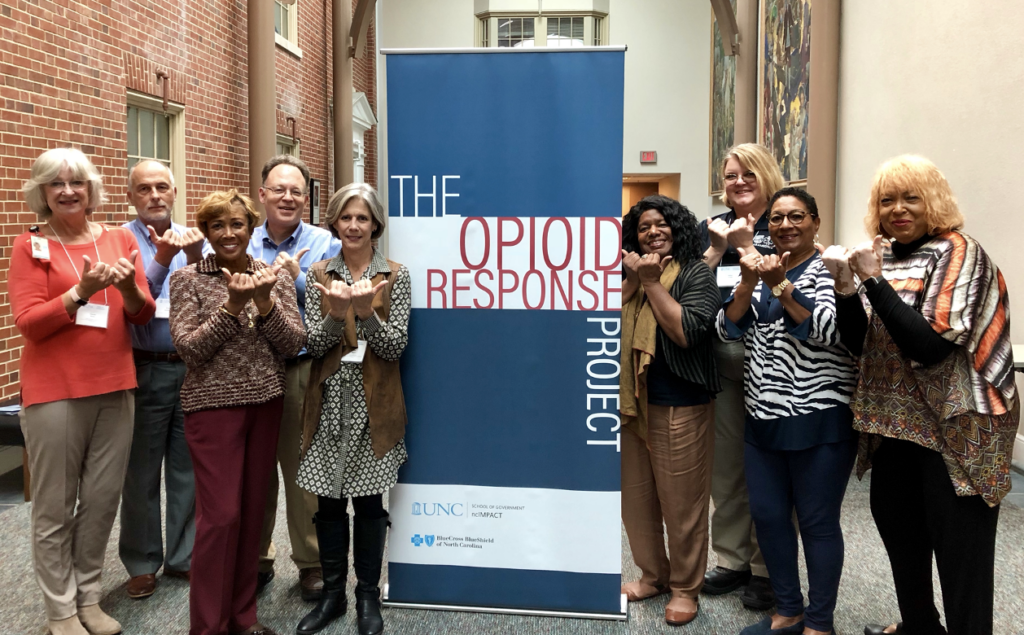Opioid Response Project
Opioid Response Project
 This report presents the results of the Opioid Response Project (ORP) evaluation. Findings of the process, outcome, and formative evaluations are synthesized to reflect learnings at both the ORP- and community-team levels. The evaluation approach was guided by a logic model, evaluation questions of interest to the ORP stakeholders, and a data collection plan. Sources of data included project documents, surveys, and interviews. Recommendations are listed at the end of the report.
This report presents the results of the Opioid Response Project (ORP) evaluation. Findings of the process, outcome, and formative evaluations are synthesized to reflect learnings at both the ORP- and community-team levels. The evaluation approach was guided by a logic model, evaluation questions of interest to the ORP stakeholders, and a data collection plan. Sources of data included project documents, surveys, and interviews. Recommendations are listed at the end of the report.
Visit the Opioid Response Project website:
Subscribe to the Opioid Response Project listserv:
To achieve the collaborative, multi-faceted approach so crucial to tackling the opioid crisis in North Carolina, the UNC School of Government launched an intensive two-year collaborative learning model providing direct support to ten North Carolina communities working to enact an integrated and innovative policy and practice response to their local opioid crises. This project, coordinated by the School’s ncIMPACT initiative, complements health and policy efforts at the state and local levels by working with communities that are ready to implement best practices. Local governments are the front lines of policy implementation. This program is produced in partnership with the generosity of Blue Cross NC. For more information about this partnership, click here.
Most of the state’s efforts focus on prevention and treatment, as evidenced by five of the seven focus areas in North Carolina’s Opioid Action Plan:
- reduce the oversupply of prescription opioids,
- reduce the diversion of prescription drugs and the flow of illicit drugs,
- increase community awareness and prevention,
- make naloxone (a medication that reverses opioid overdose) widely available and provide care options for overdose survivors, and
- expand treatment- and recovery-oriented systems of care.
While progress has been made at the state level, challenges remain for local implementation of policies and potential solutions. Local foster care and social services agencies in North Carolina see spikes in demand for services resulting from opioid misuse, local law enforcement and emergency management personnel handle more overdose and opioid-related issues, and local public health offices seeing their already-limited resources stretched even thinner to address this challenge. Communities face the monumental task of addressing a dire societal need with fewer tools in their toolbelts. But by making creative use of available tools, much can be done. Learn about the work accomplished through the Opioid Response Project, using the collective impact model to help communities respond together.
Visit the Opioid Response Project website with a categorized and searchable database of resources to help communities tackle big problems like the opioid epidemic.
The two-year learning collaborative phase of the Opioid Response Project has ended, but the learning and sharing continues. Sign up for this listserv to discover what communities around the state are doing to tackle complex problems using the collective impact model. Ask questions. Explore new ideas and resources. Stay connected.
Resources
- Opioid Response Project Forum 5 Videos
- Recovery Courts & Justice Involved Populations Video
- Opioid Data for Local Governments in NC – Access the recording here and the slides here.
- Expanding Treatment Options Webinar – Access the recording here and the slides here.
- Community Outreach & Education Webinar – Access the recording here and the slides here.
- Syringe Exchange Programs Webinar – Access the recording here and the slides here.
- 2nd District Team Spotlight
- 8th District Team Spotlight
- Opioid Response Project Team Focus: Cabarrus County
- Opioid Response Project Team Focus: Cumberland County
- Opioid Response Project Team Focus: Durham County
- Opioid Response Project Team Focus: Forsyth County
- Opioid Response Project Team Focus: Mecklenburg County
- Opioid Response Project Team Focus: Onslow County
- Opioid Response Project Team Focus: Wilkes County
- Opioid Response Project Team Spotlight: Transylvania County
- ORP Impact Report
Additional Videos


